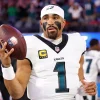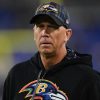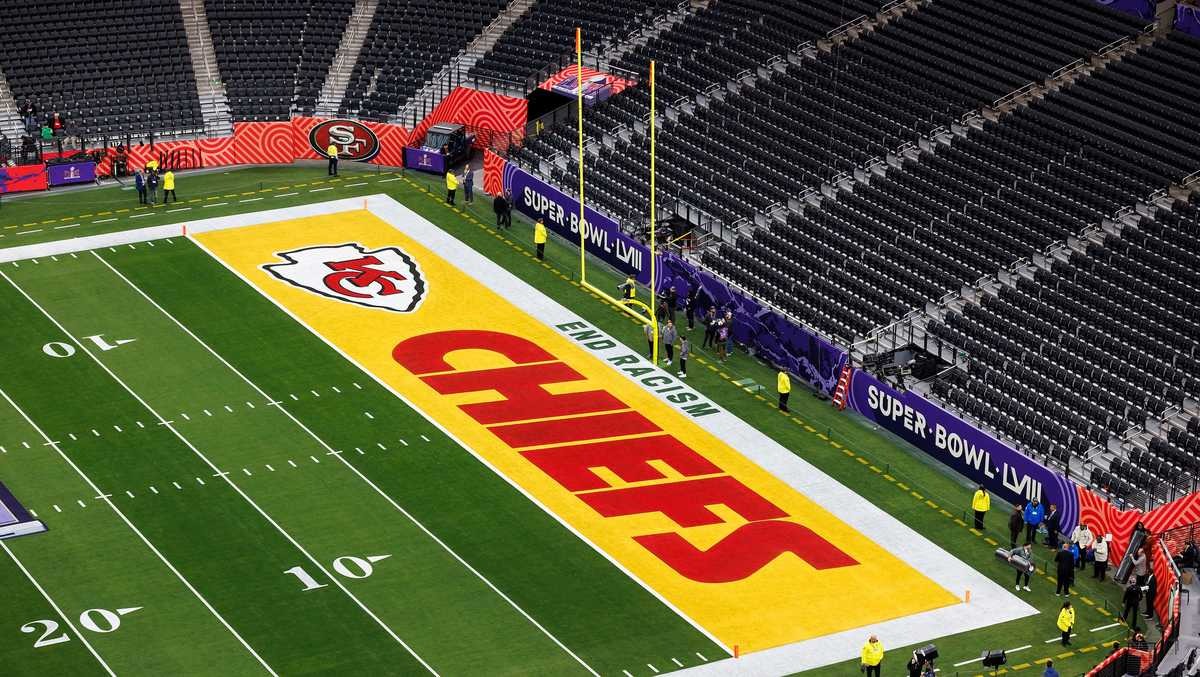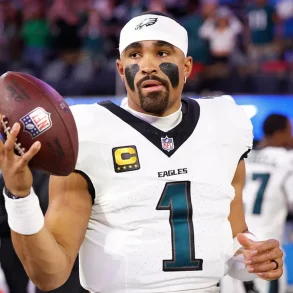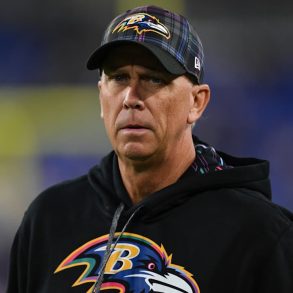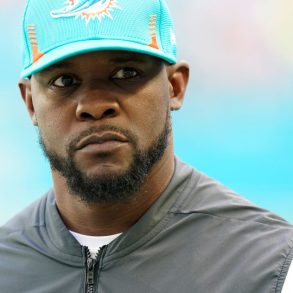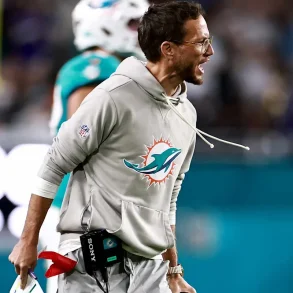During his annual Super Bowl press conference on Monday, NFL commissioner Roger Goodell reaffirmed the league’s commitment to policies aimed at improving diversity in team hiring. He made it clear that these initiatives would remain in place.
However, as Super Bowl LIX approaches and with former President Donald Trump expected to attend on Sunday, the league appears to be making a different kind of statement on the field.
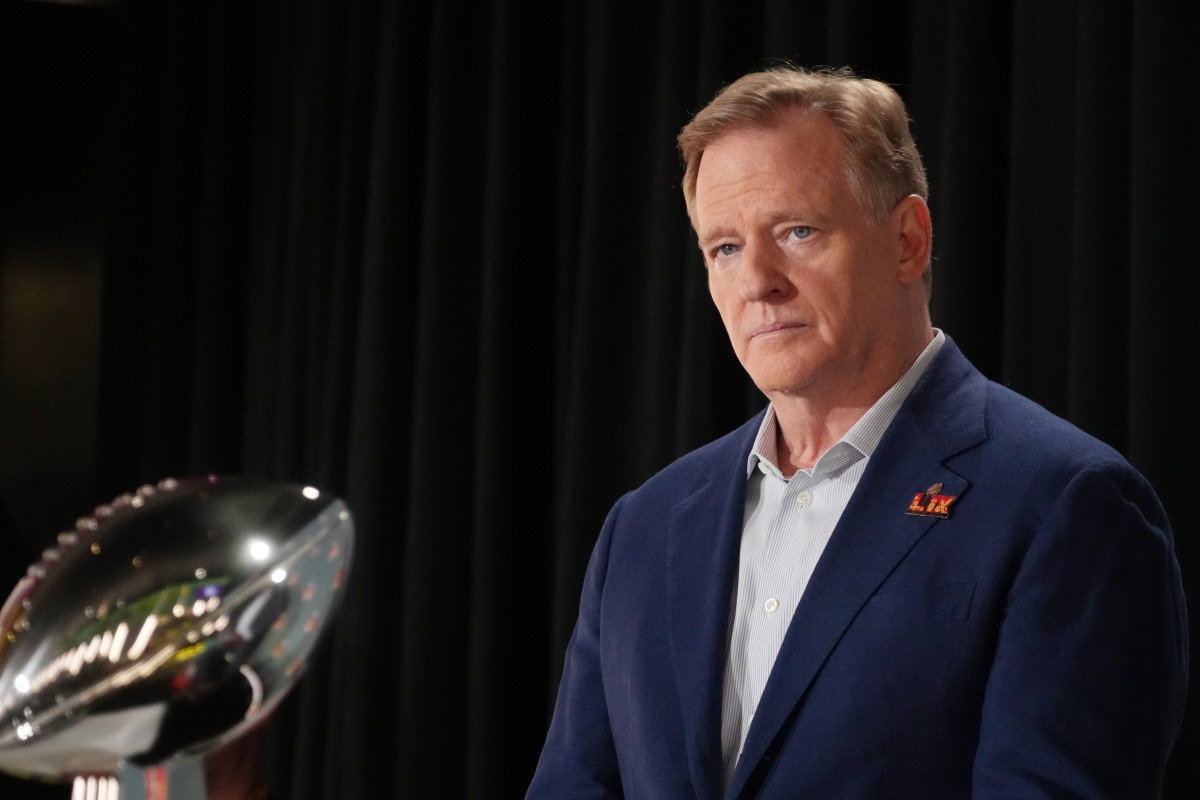
According to two sources within the league, who requested anonymity due to the sensitivity of the matter, officials have altered one of the slogans set to appear in the back of an end zone, replacing “End Racism” with “Choose Love.”
This year’s championship game, featuring the Kansas City Chiefs and the Philadelphia Eagles, will be the first since February 2021 in which “End Racism” does not appear in a Super Bowl end zone.
NFL Adjusts End Zone Messaging
The internal decision was relayed to high-ranking staff earlier in the week, and some may interpret the move as a response to the current political prospect.
Corporations and institutions across the country have been scaling back diversity, equity, and inclusion programs, aligning with Trump’s stance. Despite this trend, Goodell stood firm when discussing the NFL’s diversity policies, emphasizing that these initiatives strengthen the league.
“We pursued diversity efforts because we believed it was the right course for the National Football League,” Goodell stated. “We have demonstrated to ourselves that these efforts make the league stronger, and we will continue them.”
Concerns over the removal of “End Racism” were voiced by at least one senior league official, particularly given Trump’s vocal position on the issue.
However, NFL spokesperson Brian McCarthy attributed the decision to recent national tragedies, including the terrorist attack in New Orleans’ French Quarter in January, the devastating wildfires in the Los Angeles region, and the fatal mid-air collision near Reagan National Airport in Washington, D.C.
The end zone will still feature another message, “It Takes All of Us,” during the game. “This statement was chosen in light of the hardships the nation has endured and serves as a unifying message,” McCarthy explained.
He also pointed out that “Choose Love” and “It Takes All of Us” were used during the AFC Championship Game in Kansas City, while “End Racism” remained part of the NFC Championship Game in Philadelphia.
League insiders also revealed that Trump is expected to be in attendance as a guest of New Orleans Saints owner Gayle Benson.
Ongoing Scrutiny of Diversity Efforts
The NFL introduced its “Inspire Change” initiative in 2018, expanding its scope two years later with end-zone messages such as “End Racism,” “It Takes All of Us,” “Stop Hate,” “Choose Love,” and “Vote.”
These slogans were part of a larger campaign promoting inclusion and equality. At the time, an internal league memo described the initiative as a demonstration of how football could unite people, fostering efforts to combat racism.
The messaging was implemented following the murder of George Floyd by a Minneapolis police officer, which led to nationwide protests against police brutality.
The issue had already been prominent in the NFL four years earlier when Colin Kaepernick, then the quarterback for the San Francisco 49ers, began kneeling during the national anthem. Other players soon followed, sparking an intense debate across the league.
Goodell also addressed the status of the Rooney Rule on Monday. The policy, which requires teams to interview external minority candidates for head coaching, coordinator, and general manager positions, has faced renewed scrutiny.
In the current hiring cycle, only one minority candidate—Aaron Glenn, who joined the New York Jets—secured a head coaching position out of seven openings.
Some teams conducted interviews with minority candidates, raising questions about whether those meetings were held purely to satisfy the rule rather than as part of a genuine search.
“A well-structured hiring process incorporates the Rooney Rule, which remains a valuable element of our approach,” Goodell said. “However, it is only one component of our broader hiring policies. It’s an important step in ensuring fairness and inclusivity.”
As Sunday’s game approaches, the NFL’s most high-profile event will reflect a tempered approach to its previous anti-racism messaging, aligning with shifts seen across other major organizations.
